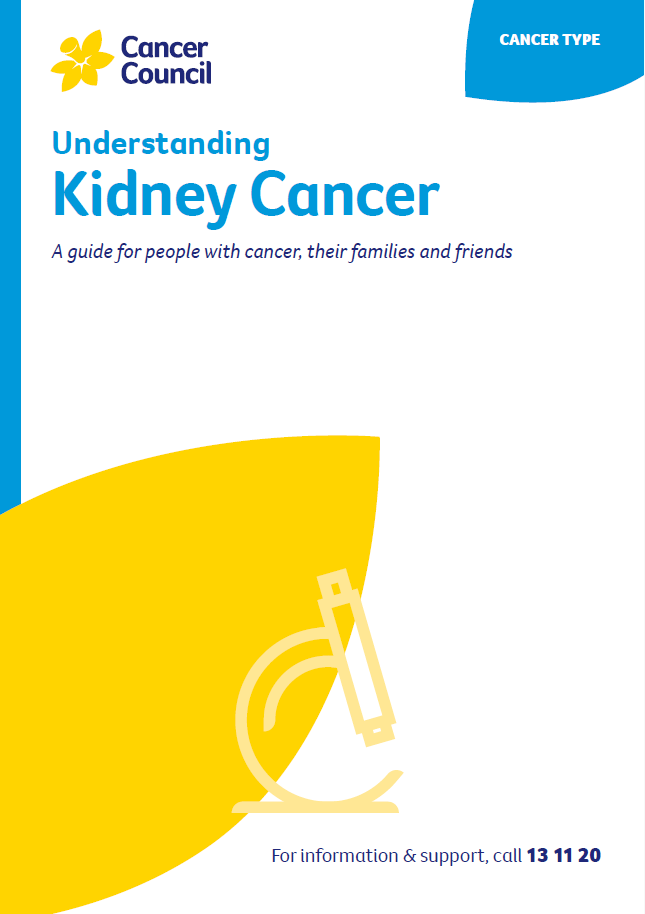- Home
- Kidney cancer
- Treatment for early kidney cancer
Treatment for early kidney cancer
Early kidney cancer (stage 1 or 2) is localised. That means the cancer is found in the kidney only. The main treatment for early kidney cancer is surgery. Less often, thermal ablation, cryotherapy and stereotactic body radiation therapy are used. Sometimes the best approach for early kidney cancer is to watch the cancer over time (active surveillance).
Learn more about:
- Making treatment decisions
- Preparing for treatment
- Active surveillance
- Surgery
- Other treatments
- Treatment for advanced kidney cancer
Preparing for treatment
Talk with your doctors about whether you need to do anything to prepare for treatment and help your recovery.
They may suggest that you exercise, eat a healthy diet or drink less alcohol. You may also find it helpful to talk to a counsellor about how you are feeling.
If you smoke, you will be encouraged to stop. Research shows that quitting smoking before surgery reduces the chance of complications. To work out a plan for quitting, talk to your doctor or call the Quitline on 13 7848.
Preparing for treatment in this way – called prehabilitation – may improve your strength, help you cope with treatment side effects and improve the results of treatment.
Active surveillance
Your doctor may suggest monitoring the cancer closely rather than starting treatment. This approach is known as active surveillance. The aim is to maintain kidney function and avoid unnecessary treatment, while looking for changes that mean treatment should start.
Active surveillance may be suggested if the tumour is less than 4 cm in size. It might also be an option if you are not well enough for surgery and the tumours are small, or if you are older.
Active surveillance involves having regular ultrasounds or CT scans. If these imaging tests suggest that the tumour has grown, you may be offered active treatment (usually surgery). Ask your doctor how often you need check-ups.
Choosing active surveillance avoids treatment side effects, but you might feel anxious about having a cancer diagnosis without active treatment. Talk to your doctors about ways to manage any worries.
→ READ MORE: Making treatment decisions for kidney cancer
Podcast: Making Treatment Decisions
Listen to more episodes from our podcast for people affected by cancer
More resources
Dr Alarick Picardo, Urologist, Fiona Stanley Hospital, WA (clinical review); Heidi Castleden, Consumer; Donna Clifford, Urology Nurse Practitioner, Royal Adelaide Hospital, SA; Prof Paul De Souza, Medical Oncologist and Professor of Medicine, Nepean Cancer Care Centre, The University of Sydney, NSW; Mike Kingsley, Consumer; Prof Declan Murphy, Urologist and Director of Genitourinary Oncology, Peter MacCallum Cancer Centre, VIC; Caitriona Nienaber, 13 11 20 Consultant, Cancer Council WA; Luke O’Connor, Urology Nurse, Royal Brisbane and Women’s Hospital, QLD; A/Prof Shankar Siva, Radiation Oncologist and Cancer Council Victoria Colebatch Fellow, Peter MacCallum Cancer Centre, VIC; A/Prof Homi Zargar, Uro-Oncologist and Robotic Surgeon, Western Health and Royal Melbourne Hospital, VIC.
View the Cancer Council NSW editorial policy.
View all publications or call 13 11 20 for free printed copies.

